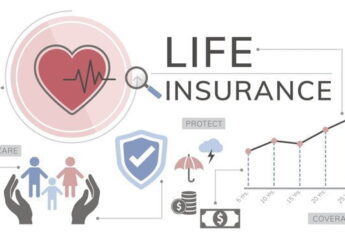Why It Is Important to Prevent Health Care Insurance Fraud
by Arina Smith Insurance 16 April 2018

Many of us have committed to our personal health and that of our loved ones by enrolling in health care insurance; such is the mindset of “health is wealth,” and we need to be prepared in any case of emergency. But on the trail of the said “wealth,” there is an alarming number of people who have less honorable intentions for our wellbeing and that of our health care system. These characters have also adapted some very elaborate systems to siphon off funds in a disreputable manner.
These actions constitute the act of healthcare insurance fraud, which the National Health Care Anti-Fraud Association (NHCAA) defines as “an intentional deception or misrepresentation that the individual makes knowing that the misrepresentation could result in some unauthorized benefit to the individual, or to the entity or to some other party.”Thus, health care insurance fraud is how anomalous groups con health insurance claimants, and it is a more common and versatile threat than most of us think.
Intelligent advancements :
There is evidence, however, that our newest intelligent technologies can help prevent fraud. One example is the case of how a claims analytics program worked for Medicare, the US government’s federal health insurance provider. The Fraud Prevention System that served Medicare aided them in finding leads among suspicious health providers, analyzing valid data, and helping to identify fraudulent billing practices—thus suspending almost USD 7 million worth of incorrect billings.
Though artificial intelligence (AI) solutions cannot solve the problem of fraud in and of themselves, AI anti-fraud solutions serve their human counterparts well in segregating notable data that is otherwise very complex and hard to sort, and leading them toward the right direction. This makes for an approach to health care insurance fraud that is more precise and practical: instead of victims paying and spending much more time and money tracking down the perpetrators, the approach is toward predicting possible courses of action and preventing them from happening on a wider scale.
What are some signs of health care fraud?
For healthcare insurance providers, investigators, and claimants alike, here are just some signs, or “symptoms,” that must be spotted and addressed, as they work against the rightful implementation of health insurance policies:
- Wrongful billing for services in the insurance statements, in which patients are charged for services or procedures that were never enacted in the first place;
- Padding or misrepresentation of any said charges, where it is not truthfully stated what nature of health care services was provided; the specific dates and places in which they were provided; the condition treated, and the like;
- The intent to compel a patient to undertake unnecessary medical procedures, or those that are the dubiously “free” type as a way of acquiring key health-related information;
- Obtainment and manipulation of sensitive health-related information, in order to exploit it for profit.
How can you do your part in preventing fraud?
The problem of health care fraud is so significant in that the health sector, insurance industry, governments, and ordinary people that hope to benefit from health services are greatly affected—it points to an entire financial ecosystem. Billions of dollars are lost every year to health insurance fraud, and those losses weigh on your taxes, your government’s liabilities, and the way health insurance companies dictate their premiums. In short, everyone should care because it’s a shake-up that affects us all.
What can all of us learn, then, from the issue of health care fraud? First, it’s that we deserve the protection of the law as much as protection for our health and that the activities of criminal enterprises should be quashed with due process.
Second, it’s that technology is evolving to identify trends in how the money flows throughout the industry and that it can be harnessed to the benefit of all.
Third, it’s that healthcare insurance providers are obliged to practice their business carefully and responsibly and be up-to-date, trustworthy, and transparent in their dealings.
And fourth—that it is also up to us to protect our health and finances, and we are the first line of defense when it comes to safeguarding ourselves and our loved ones. When we enroll in health insurance, we are obligated to read through the policies; know what benefits are covered; keep a tight grip on documents and ID numbers; and report anything suspicious.
That said, let’s all do our part to nurture both our health and our wealth!
Read Also :







































































































